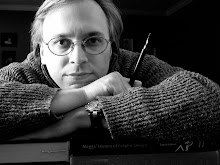So I watched the whole thing on YouTube last night and my initial enthusiasm was confirmed – and then some! This really is a delightful film and a wonderfully fresh adaptation of Mozart’s great opera, The Magic Flute. If you are a fan either of Mozart or of Branagh (and who shouldn’t be?) you really should check this out. The production has strong echos of Moulin Rouge, despite being decidedly less dark overall. (And of course the music is superior!) Branagh has received some criticism for a few of the casting choices, but I really don’t find fault with anyone; I think most are really superb in their respective roles. My only complaint is that the discernability of the lyrics is rather inconsistent, especially with the choruses and ensembles. But that just sort of goes with the territory of opera and doesn’t really present much of a problem – you pretty much get what is going on anyway. If you watch on YouTube, follow the posts by operafan1975. They are numbered sequentially (Overture, Act 1.1, 1.2, etc.) and pretty easy to follow. Also might not hurt to read a short synopsis of the libretto, if you’re unfamiliar.
Let me mention one specific thing which I find intriguing about this production. Mozart, as many are perhaps aware, was a devoted follower of Freemasonry, and this opera was originally conceived as an embodiment of Masonic beliefs and ideals. (Mozart composed the music and his friend and fellow Freemason Emanuel Shikaneder wrote the libretto and also performed the part of Papageno in the first performances.) What this amounts to, in the original version, is a rather thickly spread adoration of Enlightenment rationalism on the one hand and the infusion of a good deal of quasi-pagan mumbo-jumbo on the other, both of which have always made this opera rather off-putting for me. But in this adaptation both of those aspects (especially the second) are considerably downplayed and there has even been a subtle but effective replacement of much of the original symbolism and language with that which is more explicitly Christian. All very interesting and rather surprising. I can’t say what Mozart and Shikaneder would have to say about it, but I’m delighted that Branagh opted to give it that delicate fine-tuning. As a result, the gospel, latent in virtually all myths and fairy tales, shines forth in this work with even greater clarity.
This is one I’d like to own (to say nothing of simply being able to watch in greater clarity!), and I really hope it is available in the U.S. soon.
Saturday, May 9, 2009
Mozart + Branagh = Pure Magic!
Subscribe to:
Post Comments (Atom)





No comments:
Post a Comment